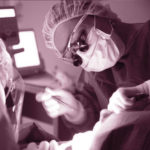FDA General Warning
The FDA released a warning about using robots in surgeries. Since then, the da Vinci surgical robot has been brought to the forefront by many news networks. Over its history, it has had many successes, but more notable are its failings. While it has only been in use for twenty years, the da Vinci has had over twenty thousand adverse events filed with the FDA. Of these twenty thousand, seventeen thousand were classified as device malfunctions such as pieces falling off into the patients’ bodies or the arms freezing or going in the wrong direction. At least 274 of the events have been categorized as deaths.
And while many of these issues have been solved in any of the 175 recalls the da Vinci has been through in the past decade (in the past two years alone these have consisted of everything from general software updates as well as failing surgical arms), there are 3,000 of these robots in use in surgery today.
Some Benefits of Surgery via Robotic Aids
However, when used properly, using robotics in surgery can bring benefits to the operating table. They allow for more precision, minimizing scarring, blood loss, and pain, and can minimize the risk of infection. Because of all this, it even lessens recovery time, which is why many people would opt for robotic surgery in the first place, especially as the technical glitches are being weeded out.
Long-Term Survival Concerns for Breast Cancer Patients Having Robotic Surgery
This new FDA warning, however, might put a damper on those benefits. Even if the surgery goes off without a hitch and you recover faster than average because you used a robot surgeon, you now have a new worry. In a study done primarily on cancer surgeries (especially cervical and breast surgeries such as mastectomies),
it has been discovered that there may be long term survival effects from using a robotic surgeon.
The warning cited a clinical trial run by The New England Journal of Medicine comparing the patients with early-stage cervical cancer by the type of surgery they had performed and their results four and a half years later. They were randomly assigned open surgery (using a large incision), minimally invasive surgery using a laparoscope (small incision using a small camera to assist the surgeon), or minimally invasive using a robotic surgeon (that is, a surgeon operating via a robot). Approximately half the patients were operated on via open surgery, and half were via minimally invasive, and of the minimally invasive, 15.6% were robot-assisted.
When the four and a half years were up, 96.5% of those who received open surgery were alive and cancer-free, while only 86% of those who underwent minimally invasive surgery were in the same condition. That’s over ten percent more. The FDA cited this study as evidence against robotic surgeons. Alongside that, assistant director for the health of women in the FDA’s Center for Devices and Radiological Health, Dr. Terri Cornelison stated the FDA is aware that “surgeons have been using the device for uses not granted marketing authorization by the FDA,” putting the patient, you, at risk.
2021 Update
In August of 2021, the FDA released a new safety communication about robotically assisted mastectomies, reminding physicians and patients alike that conclusive results on the safety and effectiveness of robot use in surgery has not been established beyond short-term follow-up.
A Hands-On Approach
Dr. Valerie Gorman has always believed in a hands-on approach with her patients. She chooses not to perform robotic surgeries. Dr. Gorman takes the time from your first step into her office to your last checkup (which is when you decide it is) to answer your questions, so you always know the risks. She knows her tools and what now to bring into the operating room with her. Moreover, she will make sure you are comfortable with her space too.
If you have had a mastectomy done using a robot assist and have concerns, contact your surgeon, or Dr. Gorman would be happy to take a look for you and answer your questions.
 Body image issues are real concerns for women cancer patients that can impact self-esteem and mental health. You may view your body and yourself differently after
Body image issues are real concerns for women cancer patients that can impact self-esteem and mental health. You may view your body and yourself differently after  Chemotherapy is an effective way to
Chemotherapy is an effective way to  When someone gets diagnosed with
When someone gets diagnosed with  Cancer is perhaps the scariest word in the dictionary, capable of striking fear into the heart of anyone who hears it inside of a second. Part of the problem is that the minute a doctor says that word, anything that he or she says subsequently becomes a total blur. It is like the patient is trying to listen to the doctor while being underwater. That’s the reason we have a resource section on our site. This article answers questions about the procedure for a biopsy of the sentinel lymph node.
Cancer is perhaps the scariest word in the dictionary, capable of striking fear into the heart of anyone who hears it inside of a second. Part of the problem is that the minute a doctor says that word, anything that he or she says subsequently becomes a total blur. It is like the patient is trying to listen to the doctor while being underwater. That’s the reason we have a resource section on our site. This article answers questions about the procedure for a biopsy of the sentinel lymph node.
 The public conception of breast cancer treatment is quite positive; people are confident that medical science has achieved a reasonable degree of success at dealing with breast cancer, and so ironically many women express more concern about how their body will look postoperative.
The public conception of breast cancer treatment is quite positive; people are confident that medical science has achieved a reasonable degree of success at dealing with breast cancer, and so ironically many women express more concern about how their body will look postoperative.
 Surgery of any kind always involves some degree of risk, and Breast Cancer surgery is no different in that regard. The good news is that the vast majority of breast cancer surgeries across the world are completed successfully without any complications. Generally speaking, when any complications do arise, they tend to be minor and easy to deal with from a medical standpoint.
Surgery of any kind always involves some degree of risk, and Breast Cancer surgery is no different in that regard. The good news is that the vast majority of breast cancer surgeries across the world are completed successfully without any complications. Generally speaking, when any complications do arise, they tend to be minor and easy to deal with from a medical standpoint.
 Breast Cancer consists of many different types, so if you have been diagnosed with
Breast Cancer consists of many different types, so if you have been diagnosed with  Humans by their very nature do not like the unknown, which might explain why one of the most frequent questions we are asked at the Texas Breast Center is what to expect regarding your lumpectomy surgery recovery.
Humans by their very nature do not like the unknown, which might explain why one of the most frequent questions we are asked at the Texas Breast Center is what to expect regarding your lumpectomy surgery recovery.
 We want to feature a recent study by Rufus Mark, MD, Gail Lebovic, MD, Valerie Gorman, MD, Oscar Calvo, PhD. on recent developments in Breast Cancer Treatment.
We want to feature a recent study by Rufus Mark, MD, Gail Lebovic, MD, Valerie Gorman, MD, Oscar Calvo, PhD. on recent developments in Breast Cancer Treatment.
 Late in 2017, the media picked up on a
Late in 2017, the media picked up on a  New radiation option cuts time by two-thirds
New radiation option cuts time by two-thirds